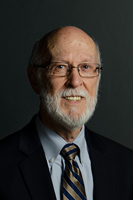

(Editor's Note: This article was first published in the September 2022 print version of The Stand HERE.)
Born in eastern Ukraine when it was a part of the Soviet Union, young Sergey Rakhuba grew up no stranger to life under communism.
“Our family experienced persecution by a communist regime set on eliminating Christianity from society,” he told The Stand. Later Rakhuba lived many years in Moscow, Russia.
Eventually, he came to the States to major in international ministries and evangelism at Moody Bible Institute. Today he maintains a family home stateside and travels frequently to oversee ministry as president of Mission Eurasia (ME), a multiple-pronged, creative Christian outreach to people in the former Soviet Union.
“We’re in 13 countries which were in the Soviet Union,” Rakhuba said, “plus Israel.”
ME was founded in 1991 soon after the collapse of the Soviet Union. Its goal was to “react quickly and decisively to new opportunities for evangelism and church planting in this former communist empire.”
Russia’s February 24 military invasion of Ukraine has strengthened Rakhuba’s commitment to ministry in his native land. ME cites four emphases that umbrella its varied ministries: church planting, leadership training, international evangelism, and humanitarian outreach.
On the way to new ministry
Following Russia’s military onslaught, ME began immediately to reinforce its outreach to the people of the region. Rakhuba cited one such humanitarian initiative.
“I commissioned Don Parsons, our director of unreached people groups initiative, to go to Poland,” he explained.
Parsons chuckled in sharing with The Stand: “He called me and asked if I could go to Warsaw.”
Parsons answered. “When?”
“Tomorrow!” Rakhuba answered.
At their homebase in Detroit, Michigan, the Parsons family was stunned, startled out of their comfort zone.
Flash back for a moment to trace Parsons’ path to missions. Though a New Jersey native, his heart’s tie to Ukraine is a personal one.
In college, he and a co-ed named Esther were friends at Philadelphia College of the Bible, and he was hoping the friendship would grow deeper. However, after a campus speaker gave an address titled “Planning to Go, Willing to Stay,” his call to the mission field was clear and certain.
He dreaded telling Esther. But he knew he must.
Her response? “Me too!”
Subsequently, in the early 1990s, when doors began to open in former Soviet bloc nations, Parsons went first with a men’s quartet to evangelize for a month in Ukraine. They showed The Jesus Film, and great numbers came to faith in Christ.
In 1997, Don and Esther, by then husband and wife, moved to Kyiv, Ukraine’s capital city, where he pastored a Ukrainian church until the early 2000s. He also facilitated church planting and equipped and mobilized Ukrainians to cross borders, evangelize the lost, and disciple other nations.
In 2020, the Parsons family joined the ME team.
And now, back to the present – this year, Parsons was abruptly called back to the Eurasian mission field.
“One of our sons,” Parsons told Fox2 Detroit television, “was struck by the reality that there are explosions happening just down the street from where we lived in Kyiv.”
On the ground in Warsaw
Within days of Rakhuba’s phone call, Parsons was back in Eurasia, fully engaged in outreach and support of thousands of refugees.
Russia’s military advance has created inhumane and unconscionable civilian crises on many tracks – hunger, death, homelessness, health, and hopelessness. Displaced and persecuted Ukrainian citizens headed west to Poland and other nations seeking refuge.
Parsons said Poland quickly became host for the greatest numbers of refugees. Consequently, food and supplies are inadequate. Living quarters are crowded. Fear and despair are rampant. It’s a field ready for harvest, and Parsons is there to work with refugee moms and children in summer church camps.
“Working with refugees can be an emotional journey,” he acknowledged. “Meeting these moms and kids, you get a taste of the trauma they have gone through.”
Parsons’ voice trembled as he shared the gripping incident of a tearful young lad, hardly older than a toddler, who approached him crying big tears, garbling his words, and gasping for breath. His words were indecipherable.
After a few repetitions, Parsons finally understood: “I’m afraid my grandpa’s going to die in Ukraine!”
In ministering to the mothers and children, ME shares the gospel, disciples believers, and feeds the hungry. Professional Christian counselors help dispel fear and depression.
“A psychologist may engage a child with Play-Doh,” Parsons explained. “If he’ll begin to play with the soft clay, he relaxes and is likely to begin talking about the trauma that has held him mute for days.” Then healing begins.
On the move in wartime
Across the entire region, every day is marked by uncertainty, by ever present pain, fear, and challenge. In more ways than one, ME has been a direct victim of the war. First, there is the acute shortage of supplies, food, and personnel.
Second is damage to facilities. ME’s field ministry headquarters in Irpin, just outside Kyiv, were destroyed within weeks of the onset of war.
“They took all of our evangelistic literature and Bibles and burned the warehouse,” Rakhuba said.
Yet, ironically, there is hope. There are indisputable evidences of God’s presence in Ukraine and in surrounding nations. Both Rakhuba and Parsons point to unanticipated signs of the gospel’s impact because of the reality of war.
“For example,” Parsons said, “one Baptist church in Krakow used to average about 70 people in Sunday worship. It may now have as many as 500.” God is calling people to Himself, as the war leads people to seek help through the church.
Schools Without Walls (SWW) is one of ME’s longstanding and highly effective arms. Rakhuba called it a “flagship ministry, an informal approach to training young leaders in their churches to go beyond their churches.”
SWW illustrates one of ME’s major visions – raising up a generation to take the gospel to the nations. ME provides SWW with resources, materials, and finances to mobilize and commission Christians for gospel outreach.
Rakhuba reiterated how the crisis of war is motivating Christians “to take their faith outside the walls, helping people in their communities while preaching the gospel and meeting humanitarian needs.”
“We are shaken,” Rakhuba acknowledged. “But not broken!”

